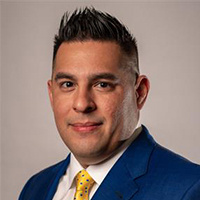Sugar Land DUI-DWI Lawyer, Texas
Sponsored Law Firm
-
 x
x

Click For More Info:
-
Stephanie Alvarado Attorney at Law
100 N Central Expy Suite 805 Richardson, TX 75080» view mapCriminal Defense Law Fighting Against Unjust Prosecution
Attorney Stephanie Alvarado is there for her clients when help is needed right away. Helping people charged with crimes in Texas for over 20 years.
800-988-5471
Adam W. Capetillo
✓ VERIFIEDCriminal, DUI-DWI, Misdemeanor, Felony, White Collar Crime
I represent individuals charged with criminal offenses. Call me and let me Fight for You.
Mr. Capetillo was born, raised, and still resides in Fort Bend County, Texas. He graduated from B.F. Terry High School as a fighting Terry Ranger Base... (more)
FREE CONSULTATION
CONTACTFREE CONSULTATION
CONTACTJoel Bennett
DUI-DWI, Estate Planning, Family Law, Federal Appellate Practice, Immigration
Status: In Good Standing
Joel Bennett
DUI-DWI, Estate Planning, Family Law, Federal Appellate Practice, Immigration
Status: In Good Standing
Ahmad Gassan Azam
DUI-DWI, Family Law, Personal Injury, Employment, Consumer Bankruptcy
Status: In Good Standing
Ahmad Gassan Azam
DUI-DWI, Family Law, Personal Injury, Employment, Consumer Bankruptcy
Status: In Good Standing Licensed: 12 Years
Amanda Colleen Bolin
Food & Drug Administration, DUI-DWI, Criminal
Status: In Good Standing Licensed: 20 Years
Amanda Colleen Coker Bolin
Food & Drug Administration, DUI-DWI, Criminal
Status: In Good Standing Licensed: 20 Years
Annie Scott
DUI-DWI, Estate Planning, Family Law, Criminal, Estate
Status: In Good Standing Licensed: 16 Years
FREE CONSULTATION
CONTACT Stephanie Alvarado Richardson, TX
Stephanie Alvarado Richardson, TX Practice AreasExpertise
Practice AreasExpertise

